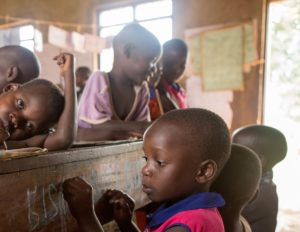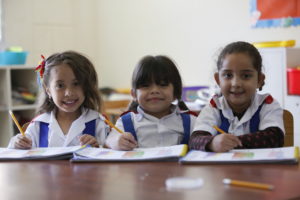How do vaccines impact a child’s educational outcomes?
According to Gavi, the Vaccine Alliance, “Vaccines protect child health and support cognitive development, enabling children to learn more and have more educational opportunities.” Vaccines impact cognitive abilities in children in a positive way at early stages of life. Studies have shown that vaccinated children get higher marks in school; they also boast increased IQ test scores.
Girls in particular can be negatively impacted in terms of immunizations, diseases, and advancement in schooling. When rates of childhood illnesses are high, attendance of teenage girls in school decreases. As older girls may additionally provide daycare services to sick younger siblings, the gender gap starts to widen in secondary school, with fewer girls completing their secondary education, which leads to increased absenteeism.
How do parental education levels impact childhood vaccination rates?
Parents with a secondary education are more likely to vaccinate their children and to have healthy children. Mothers who have been vaccinated themselves, either throughout their lives or during pregnancy, are more likely to vaccinate their children. The increase in women’s education over the past forty years, has, according to Gavi, prevented more than four million child deaths due to mothers investing in preventative healthcare, with vaccines being a crucial part of that process.
The Shot@Life campaign is proud to recognize education as an essential part of vaccine access!


